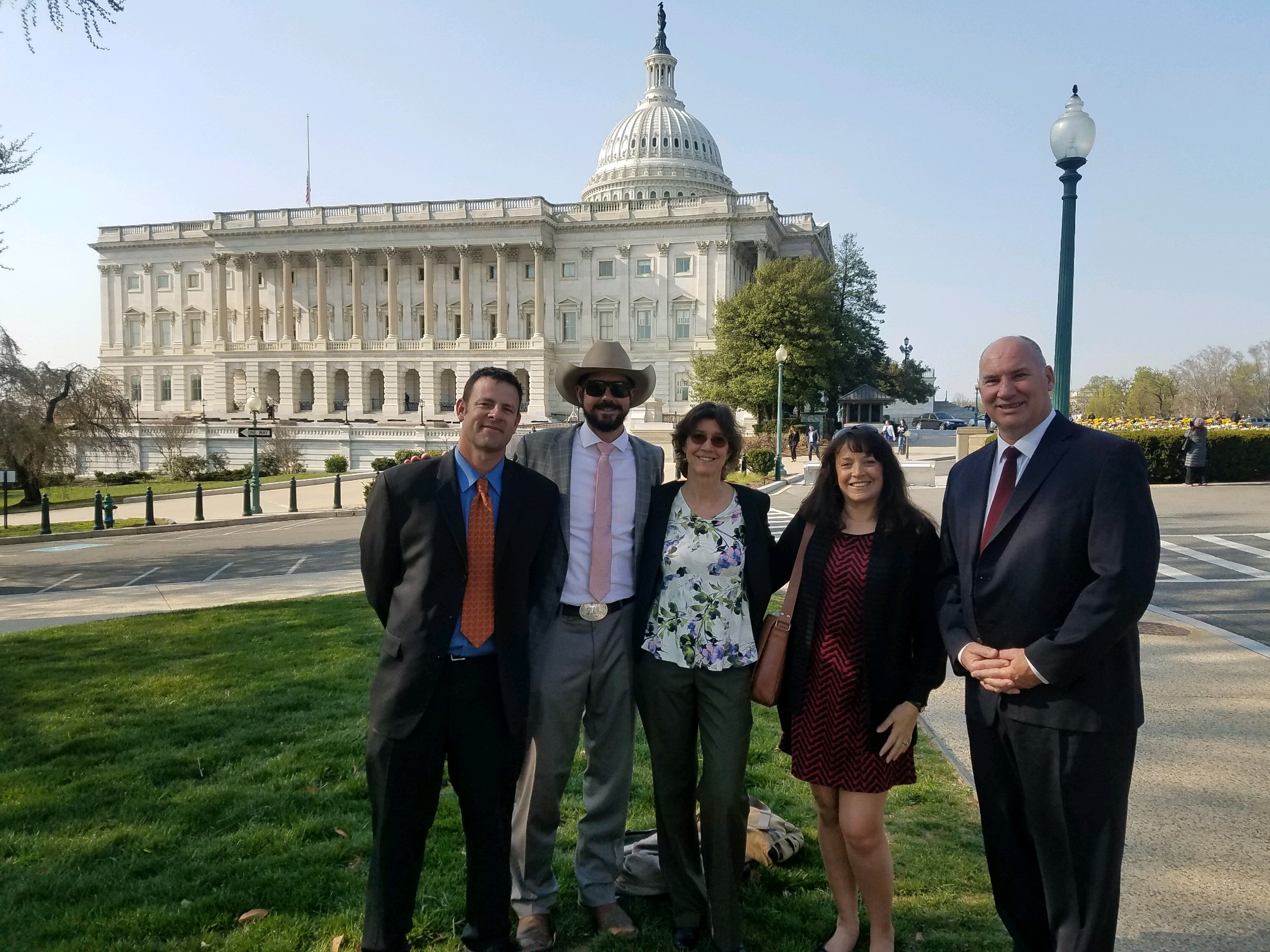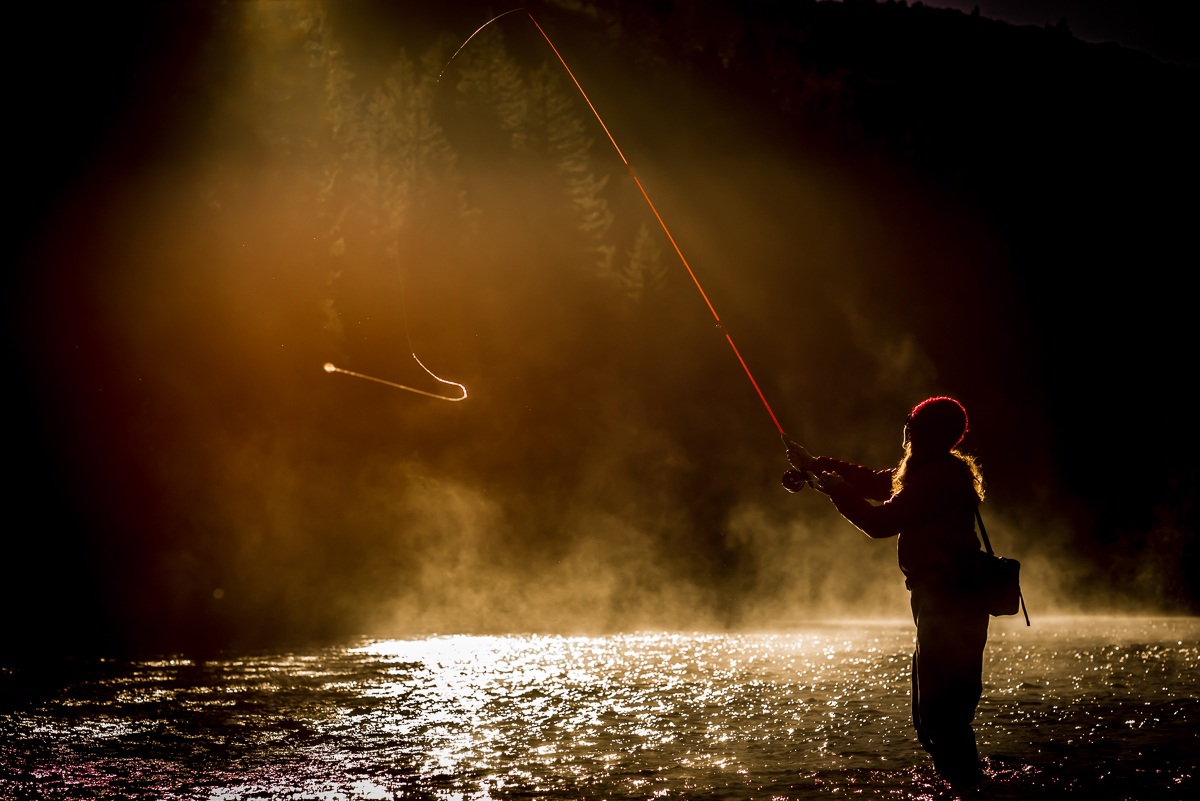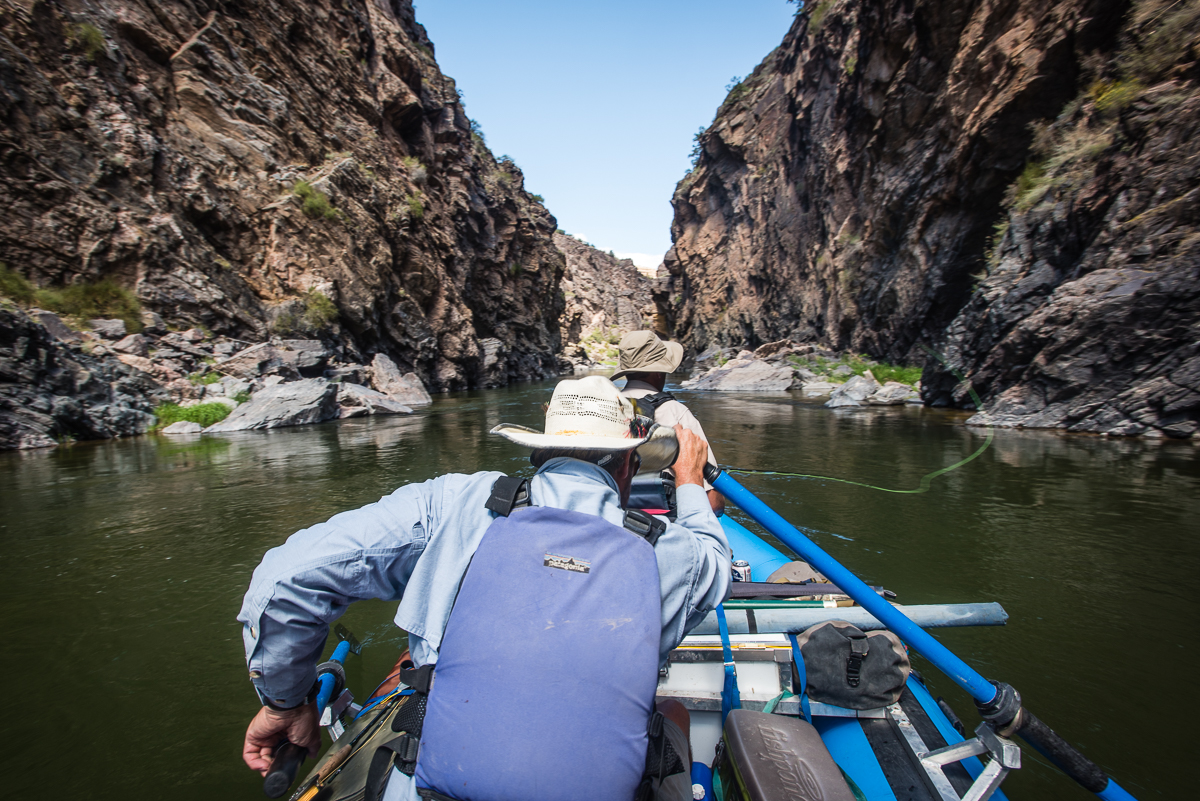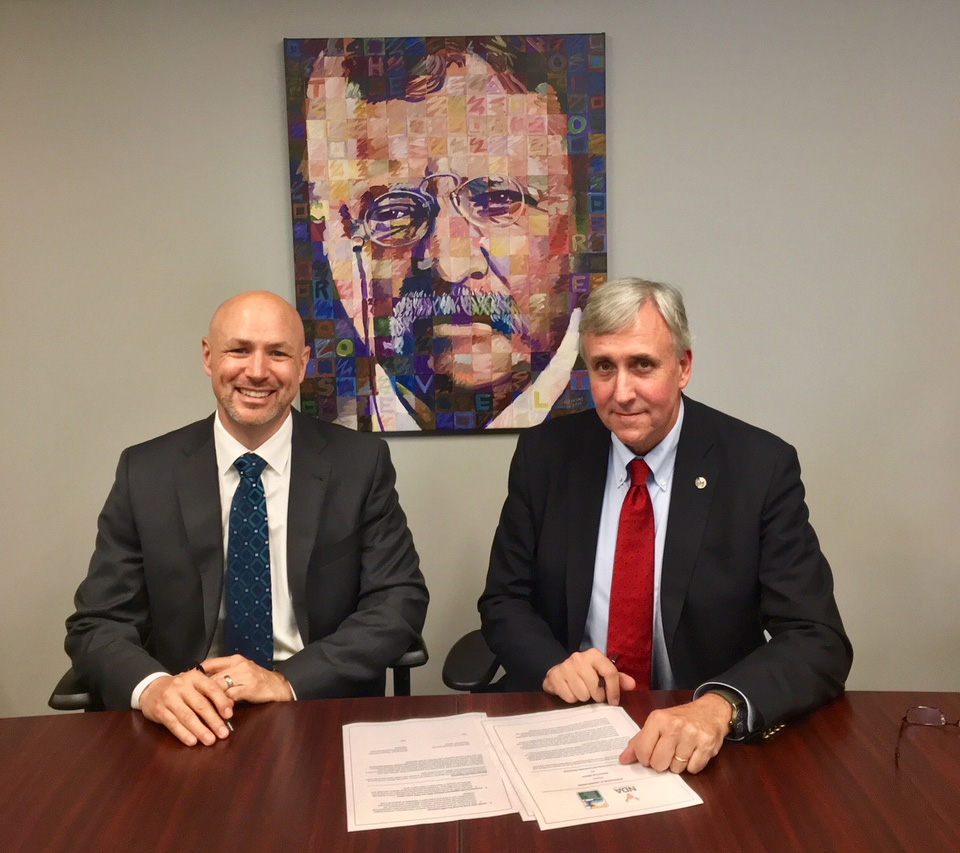Muir_and_Roosevelt_restored
Do you have any thoughts on this post?
Sportsmen and women on both sides of the aisle overwhelming want the federal government to provide Clean Water Act protections for headwaters and wetlands, even as the EPA and Congress work to repeal a rule that does so
Today we revealed the full results of a national bipartisan poll, which shows that sportsmen and women on both sides of the aisle overwhelming support Clean Water Act protections for headwater streams and wetlands.
The majority of hunters and anglers polled (92 percent) would strengthen or maintain the federal government’s current safeguards for clean water that supports healthy fish and wildlife habitat—even as federal agencies and Congress seek to roll back these standards. Hunters and anglers showed nearly unanimous support for the 2015 Clean Water Rule, which the Trump administration’s EPA and Army Corps of Engineers have worked to repeal and replace.
![]()
Only 6 percent of sportsmen and women polled supported relaxing clean water standards. (The remaining 2 percent were unsure.) And four out of five sportsmen polled said that Clean Water Act protections should apply to headwater streams and wetlands—a point of clarification in the 2015 Clean Water Rule that many hoped would reverse a troubling trend of wetlands loss.
“The responses to our poll left little room for doubt that America’s sportsmen and women want to see an end to the unnecessary regulatory confusion over what streams and wetlands deserve Clean Water Act protections,” says Whit Fosburgh, president and CEO of the Theodore Roosevelt Conservation Partnership. “As we’ve been saying since the EPA and Army Corps began the process of repealing the Obama-era Clean Water Rule, any replacement rule should provide certainty for landowners and the $887-billion outdoor recreation economy that depends on access to clean water and abundant fish and wildlife.”
The poll also revealed that, while hunters and anglers already contribute heavily to conservation in America through license purchases and excise taxes on gear and ammunition, the majority (81 percent) of respondents were willing to tax themselves to improve rivers, streams, and wetlands—even tax-averse Republicans. Nearly a third of those surveyed were willing to pay $100 or more in new taxes to restore and/or maintain water quality or quantity.
![]()
Other key survey results:
The TRCP’s national survey was conducted by respected polling firm Public Opinion Strategies. They spoke to 1,000 voters who participate in hunting and fishing nationally online and over the phone this spring. Hunting and fishing are an important part of the $887-billion outdoor recreation economy that directly supports 7.6 million American jobs.
See the full results of this national survey on clean water issues.
Explore hunter and angler attitudes toward other conservation issues on TRCP’s poll page.
Top photo by Jeff Weese via flickr
There’s tremendous demand for landscape-scale water conservation projects that involve farmers, ranchers, urban communities, and sportsmen—now, the program that makes these projects possible could see a boost in the 2018 Farm Bill
The Senate has passed its version of the next five-year Farm Bill with bipartisan support for conservation programs that boost America’s rural economies. There’s a lot to like in the bill, but for those of us watching drought conditions worsen in the West, one provision stands out.
The Senate Farm Bill would improve and expand the Regional Conservation Partnership Program, which encourages farmers, ranchers, sportsmen, and others to work together to improve watersheds on a landscape scale. This program has already been used everywhere from the Chesapeake Bay to the Columbia River to build resiliency in the face of pollution and drought.
The RCPP program has been wildly popular in agricultural communities, but it’s easy to see how sportsmen and women also benefit from these multifaceted projects. Here in Colorado, RCPP funding went toward improving the river in a way that helped to solve a water battle with cities east of the Continental Divide and allow ranchers to draw water into irrigation structures. But, at the same time, the project improved river flows and fish habitat in the Colorado River’s gold-medal trout fishery. Another RCPP project in our state will help ranchers conserve water while improving conditions for trout in the Gunnison River.
Better fishing and bigger outdoor recreation business is easy to describe to lawmakers who have the fate of RCPP in their hands. That’s why the TRCP brought hunters and anglers from Arizona, Colorado, and Wyoming up to Capitol Hill this spring to talk to decision makers about the local benefits of landscape-scale conservation through RCPP. Here are the stories they shared.

Gib McKay, whose family owns Babbitt Ranch in Arizona, described educating Congressional staff and elected officials as a powerful responsibility. “Our job was to make sure that more than a select few people understand the urgent need for water solutions in the West,” he says. Local outdoor recreation businesses can only thrive if anglers and paddlers having suitable access to healthy waterways, and as a rancher, McKay knows too well just how critical it is to efficiently use surface and groundwater drawn from the river and shared with other Colorado River Basin states, especially in years with low snowpack.
“We work every day to ensure this limited water supply is not finite,” he says. “The Colorado River is our lifeblood and the indispensable resource that allows us to continue our stories. To conserve and care for the river is not just what we should do, it is what we must do.” And RCPP ensures that no one group has to do it alone.
Also in our delegation was Mely Whiting, one of the architects of Trout Unlimited’s Colorado Headwaters Project, which used RCPP funds to divert warm, silty water away from the Colorado River’s gold-medal trout stream and into a bypass channel. She explained to lawmakers that this project helped the region’s warring water interests to forge an important partnership, bury the hatchet, and improve fishing unlike any other single effort.

Paul Bruchez, a fishing guide and fifth-generation rancher with property that borders the Colorado, spread his message in a cowboy hat and suit. He described how the Colorado Headwaters RCPP project will help his family and their neighbors enhance irrigation practices, while strengthening the river banks and improving river flows—which is also great for his fishing clients.
“The RCPP program has allowed my family and neighboring families to comprehensively and collaboratively address the water resource problems that affect our ranches in the headwaters of the Colorado River,” says Bruchez. “These issues are too big for one ranching family to tackle. In fact, they are too big for any one sector of water users to solve. But combine 11 ranching families with conservation organizations, Front Range water providers, state and local governments, agricultural associations, and others, and we have been capable of results that would have been unheard of just ten years ago.” This is the power of the RCPP program—it creates a framework for collaboration and partnership around shared goals.
Finally, decision makers got a dose of inspiration from Jim Kuhns, a disabled veteran who learned to fly fish as part of his rehabilitation and liked fishing so much he started his own organization to give other vets the chance to build rods, tie flies, and experience the zen of casting. For Kuhns, fishing on streams improved by the Colorado Headwaters Project, as well as RCPP-funded projects in his home state of Wyoming, is a privilege. “I thought the D.C. decision makers we visited listened to our stories and let us know they appreciate our work to help veterans and improve the Colorado River.”
Their support for RCPP in the next Farm Bill could help other interested groups improve watersheds across the country.

Though the House and Senate versions of the Farm Bill vary greatly, both chambers have shown confidence in the Regional Conservation Partnership Program by enhancing program funding and flexibility, even though the administration has proposed eliminating RCPP in its last two budget proposals.
After the Senate floor vote on the Farm Bill this week, Congress will meet in conference to work out the differences between their two bills. The product, we hope, will contain the very best conservation provisions for water quality and quantity, sportsmen’s access, and habitat improvements on private land before arriving on the president’s desk.
With the current Farm Bill set to expire on September 30, the pressure is on. But this is also an opportunity to make programs like RCPP work even better for sportsmen and women—we can’t afford to miss it.
Click here to learn more about TRCP’s Farm Bill platform and activities.
Top, second, and last photo courtesy of Russ Schnitzer, Schnitzerphoto.
Editor’s note: This post was updated after the Senate vote to advance the Farm Bill.
Big wins for the hunting and fishing community are undercut by unacceptable provisions that sap long-term conservation funding and threaten headwaters, forests, and wetlands
Today the House of Representatives passed its 2018 Farm Bill, “The Agriculture and Nutrition Act of 2018,” with a 213-211 vote. While there are some positive provisions for conservation and sportsmen’s access in the bill—the single largest source of federal conservation funding—it also includes a number of provisions that would undercut long-term conservation benefits to headwaters, forests, and wetlands.
The Theodore Roosevelt Conservation Partnership is especially pleased to see a 25-percent increase for the Voluntary Public Access and Habitat Incentive Program. As the only federal program aimed at opening private land to public access, VPA-HIP is a valuable tool for increasing hunting and fishing access to sportsmen and women across the country. The funding increase provided by the House bill is a much needed step towards meeting the $150 million required to meet landowner demand for the program. To date, this successful program has opened more than 950,000 acres of private land to the public for hunting and fishing across 30 states.
But this boost for hunting and fishing access is somewhat overshadowed by the long-term cuts to conservation funding in the bill. Unmet demand for Farm Bill conservation programs is at an all-time high, and sportsmen and women believe Congress should provide increased conservation funding to meet farmer and rancher demand. Also of concern is the inclusion of an amendment which seeks to repeal the Clean Water Rule, which protects our nation’s most vulnerable waterways.
“The proposed $795 million cuts to conservation would constitute a major disservice to all taxpayers—not just hunters and anglers—whose support for agriculture should not come at the cost of clean water and healthy soil,” says Whit Fosburgh, TRCP’s president and CEO. “The Farm Bill ensures that fish and wildlife continue to thrive in and around private lands while boosting hunting and fishing opportunities and the economic health of rural America. Especially since the House bill includes many of our community’s recommendations, we would have liked to see it move forward without short-sighted funding provisions or the handful of unacceptable amendments—like a repeal of the rule that clarifies Clean Water Act protections for headwater streams and wetlands and forestry provisions that would weaken the Endangered Species Act and National Environmental Policy Act.”
Other positive provisions overshadowed by cuts to conservation include:
Should the Senate follow suit and successfully pass their bill in the coming weeks, the TRCP and its Agriculture and Wildlife Working Group will work to ensure the best provisions of each chamber’s proposal are included in the final legislation.
Photo courtesy of Northwoods Collective.
Together the organizations will lead the sportsmen’s community in advocating for policies to slow the spread of chronic wasting disease
The Theodore Roosevelt Conservation Partnership and National Deer Alliance are proud to announce they have formally joined forces to fight the spread of chronic wasting disease and secure the future of deer hunting and conservation funding in America.
“CWD represents the most significant threat to deer, elk and moose today, and its spread can have a profound impact on the way we manage all wildlife in the country,” says Nick Pinizzotto, president and CEO of the National Deer Alliance. “I’m proud to be working with the Theodore Roosevelt Conservation Partnership, and I’m thankful for its leadership on this critical issue. This partnership will allow us to make an ever bigger impact with Congress and key federal agencies, which will help ensure a bright future for deer and hunters across the country.”
According to the most recent survey published by the U.S. Fish and Wildlife Service, 80 percent of all hunters pursue big game, and these sportsmen and women contribute heavily to conservation through the purchase of licenses and payment of federal excise taxes that fund state management of wildlife. Hunters spent $25.6 billion in 2016 on trips, licenses, and equipment, sustaining outdoor recreation jobs and small businesses.
Uncertainty about CWD and possible loss of hunting opportunities could irreparably alter the strength of the hunting industry, local economies in deer hunting destinations, and conservation funds for all of North America.

“TRCP’s mission is to guarantee all Americans quality places to hunt and fish, which means quality habitat, healthy wildlife populations, and abundant access to facilitate our best days afield—the fight to curb CWD underscores all of these efforts,” says Whit Fosburgh, president and CEO of the Theodore Roosevelt Conservation Partnership.
“This epidemic is a significant threat to the deer herds of North America and, therefore, to the future of conservation funding in the United States and deer hunting as we know it. By throwing our lot in with the National Deer Alliance, one of our most active and invested partners working on CWD, we have pledged to use our strengths as an organization to advance strategic, science-based policies and guidelines to slow the spread of the disease.”
Among the partners’ priorities is to bring together leaders from hunting and conservation communities to collaborate on an action plan for stemming the spread of CWD and securing robust federal funding for disease research and detection.
In April and May 2018, the Archery Trade Association, National Wildlife Federation, Quality Deer Management Association, and Wildlife Management Institute joined the TRCP and NDA in driving individual comments from sportsmen and women to the U.S. Department of Agriculture’s Animal and Plant Health Inspection Service as the agency considered changes to CWD regulations for deer farms.
More than 1,000 hunters called for APHIS to take real and meaningful steps to strengthen standards, rather than allow the captive deer industry to write its own rules. And 29 groups signed a joint letter to Secretary of Agriculture Sonny Perdue on April 12.
Theodore Roosevelt’s experiences hunting and fishing certainly fueled his passion for conservation, but it seems that a passion for coffee may have powered his mornings. In fact, Roosevelt’s son once said that his father’s coffee cup was “more in the nature of a bathtub.” TRCP has partnered with Afuera Coffee Co. to bring together his two loves: a strong morning brew and a dedication to conservation. With your purchase, you’ll not only enjoy waking up to the rich aroma of this bolder roast—you’ll be supporting the important work of preserving hunting and fishing opportunities for all.
$4 from each bag is donated to the TRCP, to help continue their efforts of safeguarding critical habitats, productive hunting grounds, and favorite fishing holes for future generations.
Learn More
